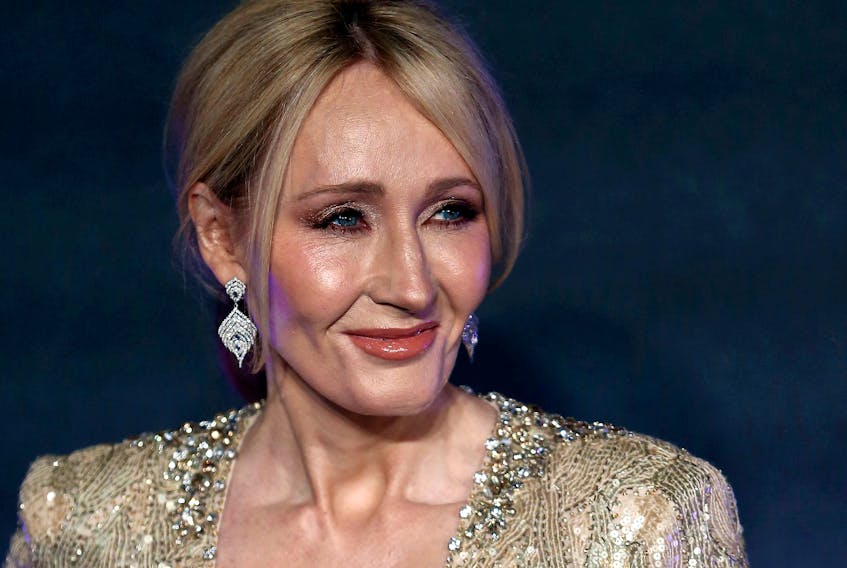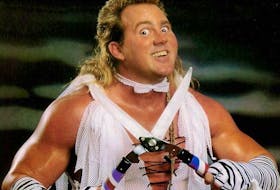July 31 is the canonical birthday of The Boy Who Lived, world-famous wizard Harry Potter. Many of his fans around the globe – and here in the Maritimes – will celebrate the occasion with a slice of misspelled birthday cake, a pint of butterbeer, or an eight-movie marathon.
One person who will be noticeably unwelcome at many of these soirees is Harry's creator, author J.K. Rowling.
Even just a year ago, most fans would give their eye teeth to share a moment with the scribe.
“I definitely have always wanted to meet her, and have her autograph one of my books,” says local fan Kristina Hubley, who discovered the book series almost 20 years ago in junior high school. “We were reading it as part of our English class, and I’ve been hooked ever since.”
At the time, Rowling had not yet publicly voiced her opinions on the topic of gender and transgender individuals. That has since changed.
Rae O'Neil is a trans woman active in the local sci-fi/fantasy community, and she explains how Rowling began outing herself as a Trans-Exclusionary Radical Feminist, or “TERF.”
“People had noticed that she was following a significant number of the leading angry TERF figures on Twitter,” says O'Neil, citing the author's defence of Maya Forstater, a U.K. woman who believes she lost work for her “gender-critical” views, as when most people became aware of Rowling's stance. “At that point, it didn’t surprise me as much, but I was worried for those who had not realized that their hero was a bigot.”
Not long after, Rowling expressed her opinions more openly, critiquing the phrase “people who menstruate” as female erasure, and writing an essay defending her position on gender on the basis that it makes “female spaces” like washrooms unsafe for women, and that young people only think they're transgender who will regret a physical transition later, O'Neil explains.
“[Rowling thinks] ‘it’s a damn awful thing if your children are trans,’ and ‘if they think they’re trans, they’re not really trans – just confused.’ In [her] view, it’s an overreach of the idea of empathy and extending compassion to others. Which it really isn’t. Most of these people ignore the wills of the people they themselves claim are women.”
“As I speak to you now, I am a man who menstruates,” says Jay Roy, a trans man, candidate for city council, and owner of the comic book shop/LGBTQ safe space in Sackville, Cape & Cowl Comics. “I exist, my experiences are valid, and they are not erased by one bad opinion.”
Since Rowling's opinions have become widely-known, Roy has seen a lot of queer Potter fans affected by the revelation that the author is transphobic.
“I know, personally, many youths who have been crushed by this, and my heart breaks for them,” he says. “I’ve received a lot of calls and messages from parents who are looking for how to explain this disappointment to their children.”
Children who read the series today are especially poised to be wounded by Rowling's beliefs, according to O'Neil.
“I absolutely don’t believe any parent should provide their children with any new Rowling fiction. She has made an explicit mission of hers, seemingly, to do what most reputable professional organizations will say is hostile towards children. Her older work should be provided only with context and supervision.”
It's not just the LGBTQ community reeling, but the whole Potter fandom.
“When that happened, I felt a lot of confusion,” says Hubley, who is not part of the LGBTQ community, but considers herself an ally. “I don’t know how somebody could create such a beautiful thing – and a safe space for everybody – can feel the way that she feels, and basically invalidate the existence of transgender people.”
Roy also expresses befuddlement that the author of a franchise that has a clear anti-prejudice message throughout its seven-book series could be so intolerant.
“It’s the reason why particularly geeks in the rainbow community, I think, gravitate towards fiction like X-Men and the sort of out-skirted members of the Harry Potter books - we root for the underdog, especially if they can mirror things that we are going through,” he says. “Frankly, it kind of boggles my mind.”
Rowling seems entrenched in her opinions for the moment, so it's left to the fans to reconcile their appreciation of the material with their feelings about the author. Some of those fans have simply decided to divorce her from the world of Hogwarts.
“They have very much taken up ‘the death of the author,’” says O'Neil, who doesn't consider herself part of the fandom, but knows many who do. “[They say] ‘it’s not hers anymore. She put it out, and she can’t retroactively ruin it for me.’”
“A lot of people were taking their Harry Potter books, and crossing out J.K.’s name,” says Hubley, explaining that much of the fandom online believes they've put more into the canon than even the author has, through fan art and fan fiction. “They’ve created so much more of this world, and they don’t want J.K. to be a part of it anymore.”
Others – especially trans people, according to O'Neil – will, perhaps regrettably, feel like the material has been forever tainted by the knowledge that its creator so devalues their experiences, and those of others.
“For some people, Harry Potter has been, thusly, ruined,” she says. “They will just see Rowling’s messages played in their head . . . as such, they won’t read anything new of hers. They don’t want to give her money or expand her empire in any way.”
Hubley still plans to enjoy her copies of the story, and the community that she's become a part of, but swears off buying any more of the author's books. But she also admits that she's not sure exactly where to draw the line when it comes to enjoying something that Rowling may still profit from.
“There’s a new Fantastic Beasts movie that’s supposed to be coming out next year,” she says. “Am I supposed to not watch that? That’s why it’s so conflicting, because I want to watch it – I want to be in that world again. So, I don’t know. I haven’t determined, going forward, how I’m going to at least participate in that part . . . I can’t take back the money that I’ve spent, but I can try and not give any more.”
It's going to be challenging to navigate being both an ally and a fan, especially of a franchise as huge as Harry Potter.
O'Neil doesn't personally feel that people who still return to the school of Witchcraft and Wizardry aren't also supportive of her or other transgender people – but she does stress the importance of making the fandom as transparently welcoming – and understanding – as possible from now on.
“Seeing someone dressed up in Harry Potter couture might make us a little uncomfortable,” says O'Neil. “Make sure that those that have been attacked by that author feel welcome in that fan community. Emphasize that trans people and queer people are still welcome in that community; that you do stand by them, and not the author.”








